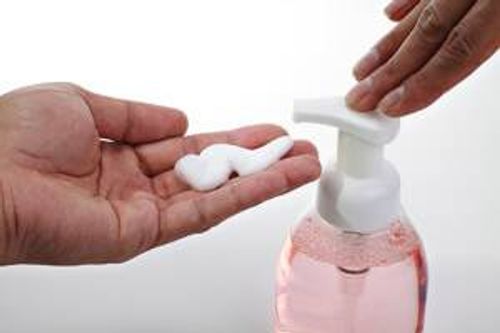4 Everyday Items That Can Cause Health Problems
Why you may want to think twice about using them
(This article appeared previously on Grandparents.com.)
You may watch what you eat, drink filtered water and use your seat belt to protect yourself on the road. Yet many health hazards are lurking around us in not-so-obvious places. Here are four you may want to steer clear of or at least cut back on:
1. Scented Candles

A fragrant candle may help you unwind and de-stress. But burning those containing a chemical called limonene, often used for citrus-scented candles, as well as many cleaning products, can produce fumes that are downright unhealthy.
Recent British research found that households with a high levels of limonene correlated with high levels of formaldehyde, which irritates the eyes and throat and may lead to nose and throat cancers. Limonene reacts with gases in the air to create formaldehyde.
What’s more, “just burning something is a source of particle pollution,” says Janice Nolen, assistant vice president of national policy for the American Lung Association. The smallest of these particles can permeate the lungs, kicking up irritation and asthma, and may over time set the stage for cancer. Smoke may also penetrate blood vessel walls leading to heart attack and stroke. Burning the occasional candle is fine, she says, just don’t make it an everyday ritual.
2. Pizza Boxes

Your pizza man delivers more than a scrumptious cheesy treat. That greaseproof pizza box is likely to contain perfluorinated compounds, or PFCs. Also used in outdoor clothing, non-stick cookware, Chinese take-out boxes, furniture, and carpets, PFCs are resistant to stains and repel water.
The problem: “They associated with adverse health effects, such as cancer, obesity, thyroid disruption, high cholesterol and low birth-weight and –size,” says chemist Arlene Blum, a visiting scholar at U.C. Berkeley’s department of chemistry and director of the Green Science Policy Institute.
Blum and a group of 200 other scientists recently released a statement calling on governments to require more testing of PFCs. Research has already shown that they accumulate in the body — and the environment. “They contain carbon-fluorine bonds, which are extremely stable and degrade very slowly, if at all,” she says.
3. Dollar Store Items

Toys and everyday products from popular dollar stores can sure save you money. But could the savings come at the expense of your health and that of those who love?
To answer that question, researchers recently tested 164 products purchased at the four largest U.S. dollar store chains, including Dollar General, Dollar Tree, Family Dollar and 99 Cents Only, for questionable chemicals, including lead, phthalates and polyvinyl chloride plastic (PVC or vinyl). The alarming result: more than 80 percent of the products tested contained at least one hazardous chemical above safe levels. Children are most at risk.
Phthalates — used in many inks, paints and other materials — may interfere with the body’s hormone system, causing birth defects, reduced fertility, prostate and testicular cancer, learning disabilities, asthma and allergies and diabetes. Lead, which is often used in PVC and to produce metal products like jewelry, harms brain development. It’s linked to learning disabilities, lower IQ, and behavior and attention problems. Present in many plastics, PVC releases harmful chemicals, such as mercury, vinyl chloride, and dioxins. These chemicals are linked to everything from liver damage to cancer.
To find safe alternatives to these consumer goods, go to GoodGuide.com, which evaluates a variety of consumer products and companies, and HealthyStuff.org, featuring health rankings for over 5,000 products.
4. Anti-Bacterial Soaps

Antibacterial soaps might promise to germ-proof your home or workplace. However, the risks associated with regular, long-term use of these products could outweigh any benefits, especially if the product contains chemical ingredients like triclosan and triclocarban, which can have unwanted hormonal effects.
Animal studies show that triclosan interferes with the body's regulation of thyroid hormone, which could contribute to infertility, early puberty, obesity and cancer in humans. And research shows that long-term exposure to the chemical may increase the children’s allergy risk.
Another potential problem: “Some have theorized that antibacterial soaps might contribute to increasing antimicrobial resistance, but more studies are needed to know if this is the case,” says Melissa Brower of the Division of Healthcare Quality Promotion of the Centers for Disease Control. “In the meantime, we like to point out that good old-fashioned soap and water are just as effective with less potential for harm.”
Grandparents.com is a lifestyle website, social media community & peer group that unites & connects America's 70 million Grandparents to the best information and premier products & services just for them. Our goal is to promote well-being and give timely information on what really matters to you, from health and money to family and relationships to travel and retirement.

